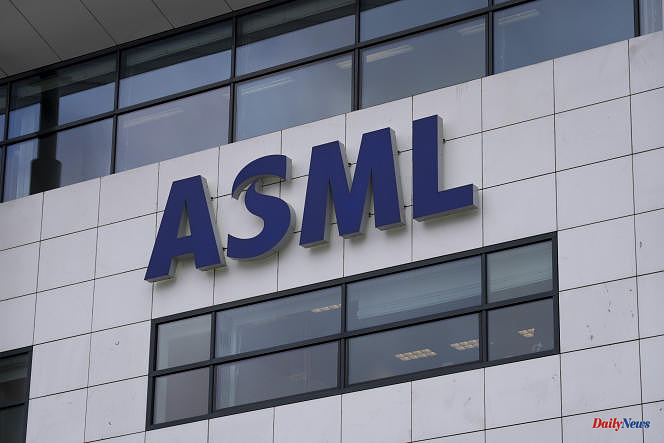After pressure from the United States, the Netherlands announced on Wednesday March 8 that it would curb the export of technologies for the manufacture of electronic chips. The Benelux country is the European leader in the sector of machines intended for the manufacture of chips, these electronic components essential to the operation of smartphones, connected cars but also military equipment.
"The government has come to the conclusion that it is necessary for international and national security to extend the current export control of materials for the production of specific semiconductors," Dutch Foreign Minister Liesje Schreinemacher said. , in a letter to Parliament on Wednesday.
The purpose of extending these controls is to prevent military use and to protect the Netherlands' "unique and leading position" in these technologies, according to the government.
The United States was pushing for export restrictions after making such a decision itself in 2022. The Dutch government's announcement comes less than two months after Prime Minister Mark Rutte met in Washington and President Joe Biden during which the issue was discussed.
Key player in the global construction of microprocessors
The export restrictions are expected to affect the Dutch group ASML, Europe's largest manufacturer of machines that produce semiconductors.
The group is a key strategic player in the semiconductor supply chain: it is the only one to build the EUV (Extreme Ultraviolet) machines which, at the size of a bus, make it possible to manufacture the most advanced chips. These are already listed in a multilateral agreement signed by some forty countries, including the United States and the Netherlands, governing the control of exports of dual-use civil-military technologies. Washington wants other ASML machines, older and called DUV (Deep Ultraviolet), essential for the production of chips in China, to also be banned from export.
On the occasion of the publication of its annual results in January, the group had urged governments to be "cautious" in the chip war between China and the United States. “We have to be careful that well-intentioned measures do not cause unfortunate consequences,” Chief Executive Peter Wennink said. ASML had reported a slight drop in net profit in 2022 to 5.6 billion euros and a jump in turnover to 21.2 billion euros.
In February, ASML said it was investigating the misappropriation by a former employee of the group in China of confidential information concerning patented technology. The company added, however, that the leak was "not material" to its business.
In the name of national security, Washington has in recent months stepped up sanctions against Chinese chipmakers, now hampered from sourcing American technology. Beijing on Tuesday accused Washington of stoking tensions between the two powers and warned of the risk of "conflict" and "confrontation".












